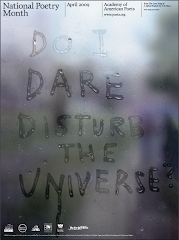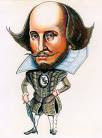I could not help but notice that the three theorists that we are kicking off this course with seem to agree on a few issues: Good writing originates from good reading and literature must be brought forth to students at a much younger age. I could not agree more with both of these statements.
Helen Vendler proposes giving young children adaptations of classic literature, such as a simple telling of one of Shakespeare's plays, or a shorter, more kid-friendly version of one of Homer's epics. Vendler believes that this type of familiarity with these stories will help students approach literary pieces with a "sense of intimacy and delighted recognition" (45). Students will also ask themselves how the adapation differs from the actual story or piece. For example, a high schooler may ask himself or herself how the language differs in a a true Shakespearean play and an adaptation of the play that he or she read as a youngster. Gerald Graff would argue that students must me pulled toward the realm of theory at a much younger age too. Graff did not appreciate literature until he was able to enter the great debate. "Relation to a community made the intimacy of literary experience possible" (48).
Vendler also states that "writers, easy and natural writers, have always been, first of all, readers" (33). Again, a truly intelligent and necessary statement on Vendler's part. I have been reading since I was three years old, and I think that my writing skills began to take shape at an early age as a result of this. As we heard in the introductory film about Virginia Woolf, Miss Woolf was writing avidly from the age of three on. Not to put myself in the same ballpark as Virginia Woolf, but I speak from personal experience when I say that reading has helped me acquire writing skills. I had little grammatical or stylistic training during my earlier schooling. I learned from first imitating other author's styles, and then from blending my own voice with their's. Robert Scholes dictates that students should read from a wide variety of media, or a "range of texts...in both high and low forms of textuality" (118). Reading everything literally helps students write in any format, style, or medium. Reading is, essentially, practicing writing!
Can anyone find other connections between these theorists and their stances on educating students in the discipline of English?
-Megan R.
Subscribe to:
Post Comments (Atom)













Scholes:
ReplyDelete"The historical knowledge that students of the discipline of English need the most is an understanding of the cultural changes that have taken place during the past two centuries, the centuries in which the modern media arose and came to dominate the cultures of the world."
(p. 115)
Vendler:
"Literature shows us the world again so that we recognize it, says Wordsworth; at the same time, literature pours a transforming light on the world, investing it-- by bestowing on it insight, shape, and concentration-- with a glory not its own"
(p. 38)
I, too, found Vendler's point about introducing people to classic texts (perhaps in more "kid-friendly" versions) at younger ages pertinent. For instance, I had a book of Greek mythology retold as fables that were geared toward young kids (it's a classic, but I forget the name at the moment... it had fantastic illustrations)which gave me a frame of reference to which I referred a lot during my high school literary studies and which prepared me for my further exploration of literature in college. I think every kid should have a book like that! And maybe a similar book of Shakespeare's stories, too! As Vendler says, "Every adult needs to be able to think of Job, or ofpheus, or Circe, or Ruth, or Lear, or Jesus, or the Golden Calf, or the Holy Grail, or Antigone in order to refer private experience to some identifying frame or soloacing reflection" (pg. 39). I think a lot of people who don't study literature really lack this, and if they had been exposed to all of those characters and subjects as children they might now have a fuller frame of reference.
ReplyDeleteIn relation to that, I was struck by the same assertion by Graff which you quoted from page 48. He needed some sort of reference outside of the text itself in order to access the text. When I first read Graff's essay, I found myself struggling to really identify with it because it seemed so foriegn from my own experience, UNTIL I read that passage. Although exposure to literary theory did not inspire my love of literature, it strengthened it and added to it immensely.
I find Scholes less stimulating that Vendler and Graff, but I agree with him fully that writing and reading need to be more closely linked in our educational systems, both at the secondary school level and at the post-secondary school level (although I think that this class in particular merges the two better than many).
...interesting conversation ---- just what I'd hoped for. Ann Page
ReplyDelete